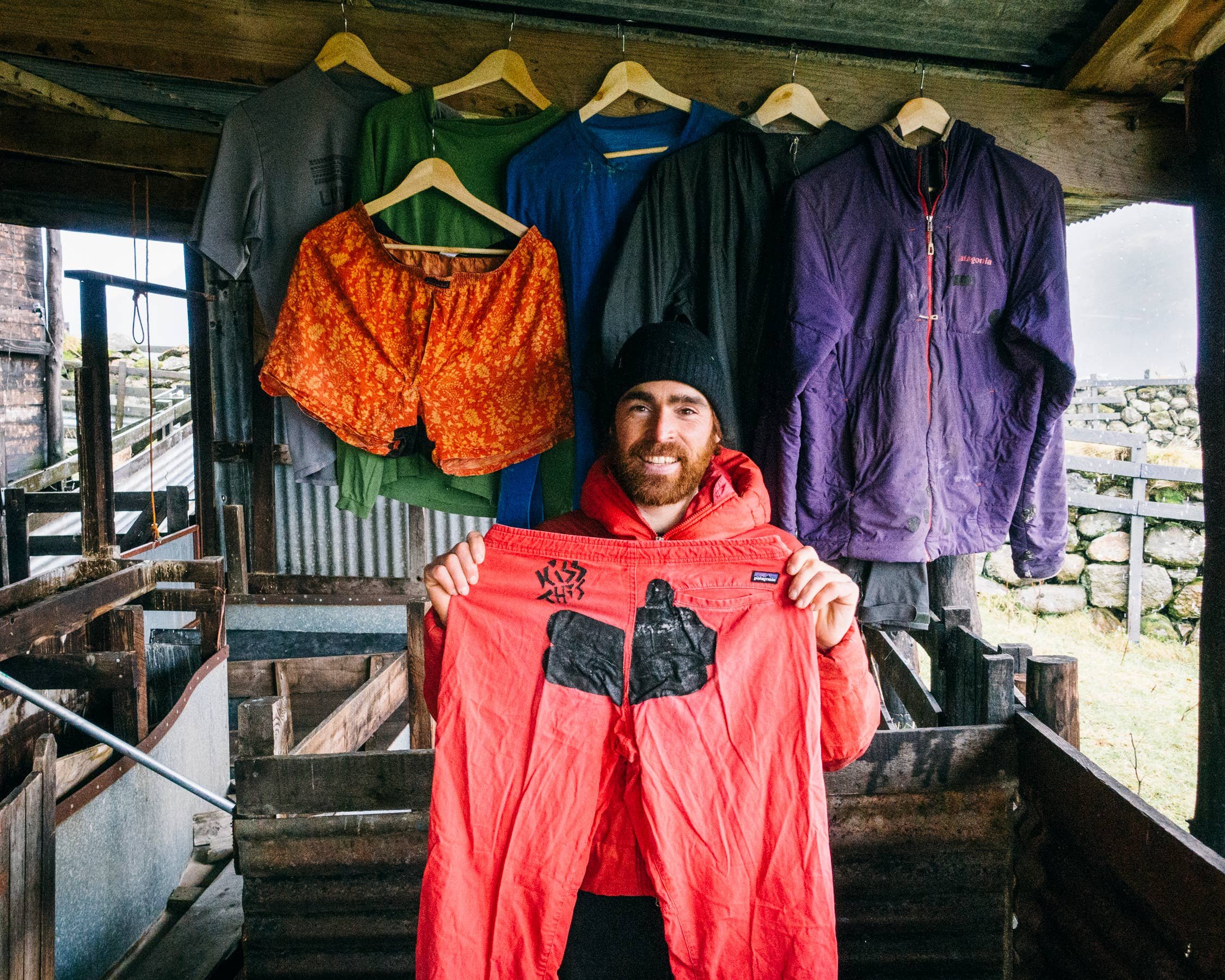Is Patagonia Clothing Sustainable?
Patagonia claims their products are sustainable; see if they meet our requirements in this blog.
What is Patagonia?
Patagonia is an American clothing company primarily known for its outdoor clothing and gear. Founded in 1973 by Yvon Chouinard, expanded its product line to include apparel for various outdoor sports like climbing, surfing, and hiking. One of the core focuses of Patagonia is sustainability. The company has achieved a B-label, indicating its commitment to sustainability in sports and outdoor clothing.
Source: Patagonia (https://www.patagonia.com/)
What environmental issues does this company solve?
Patagonia addresses several environmental issues through its practices:
Sustainable Materials Only:
The company continuously increases its use of environmentally friendly materials in its collection. By sourcing sustainable fabrics and materials, Patagonia reduces its environmental impact and contributes to mitigating issues like pollution and resource depletion associated with conventional textile production.
Ethical Wages for Workers:
Patagonia is listed as one of the frontrunners in paying living wages. By ensuring fair wages for workers throughout its supply chain, the company addresses social and economic issues related to labor exploitation and inequality.
Rejecting Fast Fashion:
Patagonia rejects the fast fashion model in favor of producing high-quality, long-lasting products. By encouraging consumers to invest in durable items rather than disposable fashion, the company helps combat the environmental and social impacts of overconsumption and waste generated by fast fashion.
Participating in Environmental Activism:
Patagonia actively engages in environmental and political activism. Through initiatives like 1% For The Planet, where it donates 1% of its total sales to environmental groups and contributes 100% of Black Friday sales to environmental organizations, the company supports various environmental causes and campaigns for conservation and sustainability.
What goods and services are offered? Do these goods serve human or planetary needs?
Patagonia offers a range of goods and services aimed at outdoor enthusiasts. Its products include outdoor clothing, gear, camping food, sleeping bags, and backpacks.
These products cater to both human and planetary needs:
Human Needs:
Patagonia's products serve the human need for quality outdoor apparel and gear, enabling people to enjoy outdoor activities comfortably and safely. Additionally, the company's emphasis on fair wages and ethical sourcing addresses the social aspect of human needs, ensuring that workers are treated fairly and ethically throughout the supply chain.
Planetary Needs:
Patagonia's commitment to sustainability and environmental activism addresses planetary needs by reducing the environmental impact of its products and operations. By using sustainable materials, offering repair and reuse programs like Worn Wear, and supporting environmental causes, Patagonia contributes to mitigating environmental degradation and promoting conservation efforts.
What happens at the end of the life of the product?
Can it be integrated into a circular economy?
At the end of a product's life cycle, Patagonia offers a repair and reuse program called Worn Wear.
Customers can return specific Patagonia items in good condition in exchange for merchandise credit, extending the lifespan of the products and reducing waste.
Their circular program directly supports the principles of a circular economy by promoting product reuse and reducing the need for new resource extraction and production.
Why should you choose this company?
Choosing Patagonia and its products offers several advantages:
Patagonia's commitment to sustainability means that choosing its products supports environmental conservation and reduces your ecological footprint.
Their focus on producing high-quality, long-lasting products ensures that customers receive durable items that will last longer, reducing the need for replacements and therefore, minimizing waste.
Patagonia's adherence to fair labor practices and ethical sourcing. These expectations ensure that workers are treated fairly and ethically throughout the supply chain, providing peace of mind to socially conscious consumers.
Overall, Patagonia offers a range of sustainable outdoor clothing and gear, addressing both human and planetary needs while promoting environmental conservation and social responsibility. Choosing Patagonia supports sustainability, durability, and ethical practices, making it an ideal choice for anyone looking to live an environmentally and socially conscious lifestyle.
Discover our Sustainable Marketplace
Our online marketplace proudly showcases companies similar to Patagonia. With our platform, we actively vetted sustainable products that contribute to the Circular Economy.
Each company featured in our marketplace undergoes a rigorous evaluation process, ensuring that their products adhere to our four-step methodology.
When you choose to support these businesses, you're not just making a purchase; you're investing in a thriving economy that prioritizes environmental preservation.
Click here to learn more about our mission.
Key Takeaways:
1. Patagonia is recognized for its dedication to sustainability within the outdoor clothing and gear industry. From sourcing sustainable materials to engaging in environmental activism, the company addresses various environmental issues associated with textile production and consumption.
2. Patagonia ensures fair wages for workers throughout its supply chain, combating labor exploitation and inequality. By rejecting the fast fashion model and producing durable, long-lasting products, the company promotes ethical consumption and reduces the social and environmental impacts of overconsumption.
3. Patagonia offers a wide range of outdoor clothing and gear designed to meet the needs of outdoor enthusiasts. These products serve both human needs for quality apparel and planetary needs for environmental conservation, thanks to the company's emphasis on sustainability and ethical sourcing.
4. Patagonia's Worn Wear program promotes product reuse and extends the lifespan of its items, aligning with the principles of a circular economy. By directly encouraging customers to repair and reuse their products, Patagonia reduces waste and minimizes resource extraction and production, while promoting a circular mindframe.
5. Choosing Patagonia means supporting sustainability, durability, and ethical practices. By opting for Patagonia's products, consumers contribute to environmental conservation, support fair labor practices, and invest in high-quality, long-lasting items.
6. Carom's Sustainable Marketplace provides a platform for consumers to discover and support companies like Patagonia that prioritize sustainability. Each company featured in the marketplace undergoes rigorous evaluation to ensure alignment with environmental values and the circular economy. By supporting these businesses, consumers contribute to a thriving economy that prioritizes environmental preservation.



